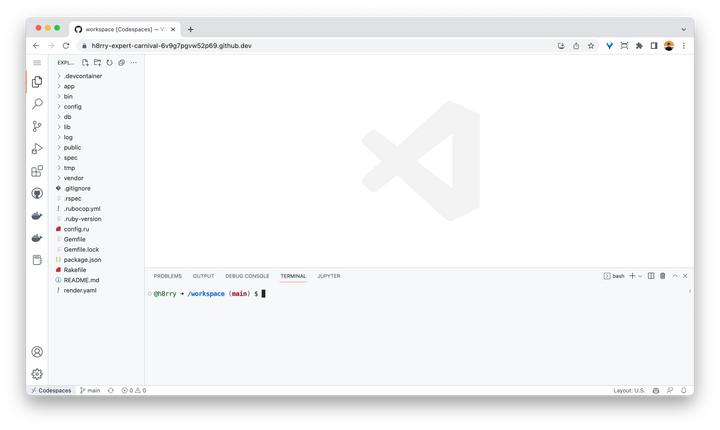To code is to write. You still need to learn to write and code in the age of AI
Introduction
As we enter the age of Artificial Intelligence (AI) and Machine Learning (ML), many people wonder if learning to code is still relevant. The truth is, even in the age of AI, learning to code and write is more important than ever. In this blog post, we'll discuss why you should still learn to code and how it can benefit your life and career.
Why Learn to Code?
1. Coding is a valuable skill
Coding is a skill that is in high demand. In today's job market, knowing how to code can set you apart from other job seekers. Not only is it a valuable skill in and of itself, but it also demonstrates critical thinking, problem-solving, and creativity. By learning to code, you're investing in a skill set that will be beneficial in a wide range of industries.
2. Coding is a form of communication
Just as writing allows you to communicate your thoughts and ideas to others, coding allows you to communicate with computers. In the age of AI, where computers and technology play an increasingly important role in our lives, being able to communicate with them effectively is essential. By learning to code, you'll be able to better understand and interact with the technological world around you.
3. Coding fosters creativity
Learning to code allows you to express your creativity in new ways. Instead of simply consuming technology, you'll be able to create and shape it to your own vision. Whether you're designing an app, building a website, or creating a game, coding gives you the tools to bring your ideas to life.
4. Coding can be a rewarding career
With the growing demand for skilled coders, pursuing a career in programming can be a lucrative choice. Many coding jobs offer competitive salaries, flexible work arrangements, and opportunities for growth and advancement. Plus, as technology continues to evolve, there will always be new and exciting challenges to tackle.
How to Learn to Code
Now that we've established the importance of learning to code, let's discuss how to get started.
1. Choose a programming language
There are many programming languages to choose from, each with its own strengths and weaknesses. Some popular languages for beginners include:
Python: Known for its readability and versatility, Python is a great language for beginners. It's widely used in industries such as web development, data analysis, and AI.
JavaScript: If you're interested in web development, learning JavaScript is a must. It's the language that powers the web, allowing you to create interactive and dynamic websites.
Ruby: Ruby is another beginner-friendly language that is popular for web development. Its clean syntax and focus on readability make it a great choice for those just starting out.
2. Find resources to learn from
There are countless resources available to help you learn to code, from online tutorials and documentation to books and YouTube channels. However, one of the most effective and affordable options is Altcademy.com.
Altcademy is a 100% online coding bootcamp that offers comprehensive and structured courses in various programming languages. With a combination of text-based lessons, interactive exercises, and real-world projects, Altcademy provides a hands-on learning experience that will help you become a skilled coder in no time. Plus, with its affordable pricing, Altcademy is a great option for those looking to learn to code without breaking the bank.
3. Practice, practice, practice
As with any skill, the key to becoming proficient at coding is practice. Set aside time each day to work on coding exercises and projects, and be patient with yourself as you progress. Remember that everyone learns at their own pace, and it's normal to encounter challenges along the way.
Using Analogies to Understand Coding Concepts
Learning to code can sometimes feel overwhelming, especially when you encounter new concepts and jargon. One way to make the learning process more approachable is by using analogies to help understand these new ideas. Here are a few examples of analogies that can help illustrate some common coding concepts:
Variables
A variable in programming is a way of storing data for later use. You can think of a variable as a box that you can store things in. You can put something inside the box, take it out, or replace it with something else. Just like a box has a label to identify its contents, a variable has a name so you can easily refer to it in your code.
Functions
A function is a reusable piece of code that performs a specific task. Imagine a function as a recipe. A recipe takes certain ingredients as inputs and gives you a finished dish as the output. Similarly, a function takes inputs (called parameters) and returns an output based on those inputs.
Loops
A loop is a programming construct that allows you to repeat a block of code multiple times. Picture a loop as a conveyor belt in a factory. The conveyor belt moves items through a series of stations where different tasks are performed. Once the tasks are complete, the items move back to the beginning and go through the same process again. This repeats until a specific condition is met.
Conclusion
In the age of AI, learning to code remains an essential skill that can open doors to exciting career opportunities and help you better understand the technology that surrounds us. By choosing a programming language, finding the right resources (such as Altcademy.com), and practicing regularly, you can become a skilled coder and unlock your creative potential.
Remember that learning to code can be challenging at times, but by using analogies and breaking down complex concepts, you can make the process more accessible and enjoyable. So, dive into the world of coding and discover the endless possibilities that await you.




